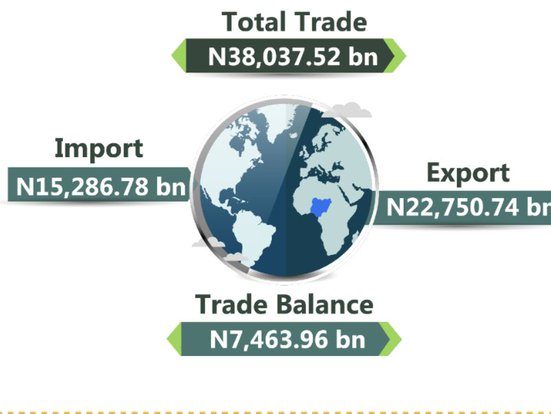Nigerians may finally be getting a measure of relief at the markets as food prices begin to show a noticeable decline across the country. This development was confirmed by the Minister of Agriculture and Food Security, Senator Abubakar Kyari, who stated that recent interventions by the Federal Government under President Bola Ahmed Tinubu are beginning to yield tangible results.
Speaking during a televised interview on Friday, Senator Kyari credited the downward trend in food prices to the President’s bold food security strategy, which he described as both urgent and deliberate. According to him, the government adopted a dual-track approach — enhancing local agricultural productivity while temporarily allowing controlled food imports to ease immediate pressure on supply.
He explained that when President Tinubu assumed office in mid-2023, Nigeria was grappling with deep-rooted issues in its food supply system. The decision to declare a state of emergency on food security in July 2023, the minister said, was a strategic move aimed at quickly stabilising the nation’s food ecosystem and preventing a full-blown crisis.
“The temporary importation window was not meant to discourage our farmers. It was a short-term intervention designed to manage supply and demand. That window lasted just six months and has since been closed,” Kyari noted.
He further clarified that the imports were limited in scope and strictly monitored to ensure they did not flood the market or hurt local producers. Simultaneously, the administration ramped up direct support for Nigerian farmers through various incentives aimed at improving productivity and reducing input costs.
As part of these interventions, President Tinubu directed the Central Bank of Nigeria to release two million bags of fertiliser, which were distributed to farmers free of charge. In addition, the Federal Government rolled out subsidy programmes that reduced fertiliser costs by up to 50%, a move that Kyari said contributed significantly to increased yields across the 2024 farming season.
The minister acknowledged that while notable progress has been made, challenges remain—particularly in the production of key staples such as rice, where domestic output still falls short of national demand. He stressed that the administration’s policies have been designed to close these supply gaps without undermining the interests of local agricultural producers.
“Food security is about availability, affordability, and accessibility. These interventions were carefully structured to strike a balance between providing relief to consumers and empowering farmers to scale up their production sustainably,” he explained.
In a further push to consolidate gains and tackle remaining hurdles, President Tinubu recently directed a Federal Executive Council (FEC) committee to implement additional urgent measures aimed at further reducing food prices and ensuring broader food access nationwide.
Policy analysts have lauded the current administration’s strategy, noting that it reflects a willingness to combine immediate consumer relief with long-term structural reforms in the agricultural sector. As implementation continues, many Nigerians are watching closely to see whether the current trend of falling food prices will be sustained in the months ahead.







